|
Sasha Reiter and Isaac Goldemberg perform selected poetry by Sasha Reiter International poet Carlota Caulfield (C.C.) and Somos en escrito's poetry editor Jenny Irizary (J.I.) interview Sasha Reiter concerning his chapbook, Choreographed in Uniform Distress / Coreografiados en uniforme zozobra. C.C.: Choreographed in Uniform Distress / Coreografiados en uniforme zozobra, your first published collection, contains beautiful crafted poems. Whether talking about dreams and memory, everyday experiences or a cellphone obsession, you offer the reader skillful and poignant images. There are so many rich images in your work. I’m wondering, how does a poem start for you? First of all, thank you so much for these generous and kind words about my work. To answer your question, when I am starting a new piece, it is usually because there is something unresolved and weighing on me. Sometimes when I have a feeling I realize is too complex for me to process in the moment, I’ll be drawn to the page. My earlier drafts are commonly explorative for me, and I use the writing process to help myself through emotions I can’t understand. Sometimes, I’ll write a poem to reconstruct a scene or create one that can hold up my anxiety clearly enough for me to see it. C.C.: The critic Luis Benítez wrote that your “texts dialogue and interact among themselves and then with their reader, like a polyphony that opens up the nuances and hidden places, the tonalities and landscapes of a universe that belongs to Reiter”. Where do you think your drive toward the polyphonic comes from? This question is such an interesting one for me, Luis Benítez so elegantly struck an important facet of my thinking process here, and it’s wonderful to be able to hear someone so beautifully describe something I’ve felt that I’ve struggled with the majority of my life. I think if my writing is polyphonic then it is mostly because my thinking is polyphonic. My inner thoughts feel consistently spliced into several voices, and I’ve often described the inside of my head to feel like many television sets turned on at once, each playing its own channel. Sometimes when I speak, I struggle to hang on to just one voice, and I fear that I come across as confused and unthoughtful of my speech patterns, but on the page, I have the time and space to understand these voices, to let them talk to one another. C.C.: I delight in the poems where elements of our modern world float, sometimes gently and others fast-paced, weaving not only personal, but also others’ experiences into stories. Tenderness and irony appear in the dazzling “Algorithm for Calculating Emotional Variance”, “Statistical Probability for the Threshold of Goodbye”, “Lost in Translation”, and “Canadian Geese Fly South for the Winter”. One could say that some of your poems are story-oriented. Do you agree? I thank you for describing some of my poems as story-oriented. I think what first drove me to writing in general was a passion I had developed for consuming stories as a child. I feel incredibly blessed to have been born during a time when stories have so many forms of popular media to be delivered through. I can say pretty confidently that my primary source of pleasure and joy in this world comes from getting to be someone else, somewhere else at any given moment. It’s like having a superpower. Whether on a page or screen, in a game, animation, live action or novel, stepping into another life, being let into their experience and expanding my own is what I live for. Though I feel it is a challenge to tell a good story in a single poem, it is a challenge I find quite fun. J.I.: You write about being “in the center” when others say you are not “trapped between” in the poem “The Latino Man Tells Us not to Worry About the Jews”. Could you say more on “in the center” and “between”? With great pleasure. This is a topic I love expounding on, though at times struggle to write about. I think sometimes in Western culture we are expected to define ourselves by what makes us different. I’ve often felt alienated by communities that at the time I believed I belonged to. I’ve had Hispanic friends at work make derogatory comments to me about Jews, and because my parents have accents and came from predominantly Catholic countries, the Jewish community where I grew up made no effort to welcome us. The truth is that when you grow up on the outside, you witness an astounding amount of hate from a very young age. From antisemitic elementary school friends to the Trump administration and immigrant children in cages, in a world that tries to separate and lineate in an attempt to understand, those of us that don’t box so easily are caught in an almost liminality. I guess I feel that in some way, I have always been having an identity crisis and always will be. I feel that I live between the most important boxes we use to define ourselves, in the center of a gap, where somehow, every side hates us equally. That said, I think there is hope. I see my generation toiling with the multi-faceted reality of breaking down these boxes. I want to be a part of that, and I want to see more of that in my own writing. J.I.: Many poems try to negotiate the boundary between compromise and one-way accommodation, and the specters of apologies perhaps not made haunt the book. How did you choose what to leave submerged or reveal? I took a course in undergrad on comics that changed my way of thinking permanently. I learned about the incredibly important blank space. When everything works right, establishing a scene with specific sensory imagery can bring the reader into a space in the writer’s mind, but leaving somewhere for the reader to interject their own details, or for the writer’s to trigger a response, allows the speaker, the writer and the reader to come together and become something intimate, emotionally expressed by all parties, yet safe behind the page. Choosing what to leave under the page’s surface and what to detail is arguably the complex art of writing. I do not by any means feel that I have mastered that art, but I’ve found it to be most rewarding to imagine the writer using the speaker of their work as a way of asking the reader to question their versions of our shared, yet unshared experiences. In this case, many poems reflect a need to tackle unresolved guilt surrounding the nuances I admittedly still struggle with in communication. Relationships are abstract in shape, and compromise often becomes one sided without any malice present. Unfortunately, malice is not a required ingredient in causing pain. This has been a great source of personal guilt for me, and apologies not made haunt us all. By providing detail oriented spaces in which we question trapped guilt, but keeping holes to breathe within that guilt, the hope is that a reader may be inclined to fill in those holes with their own ghosts of conversations, solitary uncontextualized memory and apologies stuffed in their unmailed envelopes. With their experiences in my sensory-focused scene, the readers complete my poems. Maybe our unforgotten apologies can apologize to each other. J.I.: “Algorithm for Calculating Emotional Variance” deals with gaining and then losing a level of intimacy or rapport. Can you say more about the interplay between grief and personal growth in this relationship shift? I think this topic for me extends as far back as childhood. As adults, we carry all these fragmented memories from childhood that we had no hope of settling on our own as kids. I believe that those emotionally charged shards of imagery become our responsibility to work through as adults, for our own happiness and that of those we love. Poems such as these were attempts at settling that grief of loss when the person is still very much alive and in your life. Rejection or loss of love and friendship can be quite the rude awakening into the Lacanian mirror stage, which proposes a time in which children come to understand themselves as desirable entities, objectifying themselves internally, eternally. That sensation never leaves us, and many of us carry it, unsettled, through adulthood. I know now that I had difficulty understanding these feelings as a child, and in this poem I think we can see the speaker growing into that grief and making some sense of it as a young adult with their father. J.I.: Why the milk versus water taste imagery in “Milk”? What inspired this poem? For me, at least, the images of milk and water don’t mix so peacefully, water soaked desserts have that same uncanniness, and I wanted to bring something visceral, yet innocent to that poem. I like to think my sister and I grew up close, and as an older sibling, I guess I felt it my job to take care of her and to help her grow into some better version of myself. Of course, after I returned from college, she was no longer little, and hearing stories about my baby sister dating was shocking for me, at first. In this poem, I was after that sensation. There are many ways to experience the uncanny, I think. In this case, our speaker attempts to settle and conflate the vulgarity of two images that don’t go together—the image our speaker has had of their baby sister, and the image our speaker conjures up of her kissing a boy. As with water and apple jacks, our speaker is having difficulty accepting this unsettling, yet seemingly innocent combo. I am glad to say that, as is often the case with writers and speakers, my real life sister differs from this character in that she has never eaten her cereal with water, at least not in front of me. J.I.: Your work speaks to the detachment from self and purpose in the world of conventional office work “success”. Also the tension between not meeting unspecified expectations and rejecting the emptiness of certain expectations. Can you say more on that? Certainly. These are anxieties I hold dear to my sense of self, as I have lived with them since I have been self aware. Maybe this is universal, but I find it very unrewarding to strive to meet unrequited expectations. As a child, this was a learning obstacle, as my motivation was fickle, and I was raised in a house where grades were very important and this kind of unfelt success measured by someone else’s standards was law. This gave me an interesting relationship to conventional school or office “success”. On one hand, meeting my parents’ expectations for success meant very little to me, personally, but on the other, it meant love, adoration and pride from my parents. I was quite disappointed to grow up and find that the cycle continues in the workplace. For many, the majority of our waking lives is spent so that someone else can tell us we are successful, and give us money. In this same light, we are told that money is a measure of success, yet we forget that by working for someone else’s expectations we sacrifice the fulfillment and sense of purpose that comes from meeting our own. This has always felt so wrong to me. That battle between managing my own expectations for myself and those of others plagues me, and I imagine it plagues much of my writing. C.C.: Your book was translated into Spanish by the internationally well-known poet and writer Isaac Goldemberg. Would you please talk about your experience working with Goldemberg? Isaac Goldemberg is a pleasure to work with. He has ideas that come, seemingly out of the void, always ingenious. Having known Isaac Goldemberg for the duration of my life as my grandfather, I spent a lot of time with him as a child, establishing within me a great love for stories. My experiences in undergraduate college brought out this love and created in me a passion for writing. After studying my craft for years and earning my degree, it was such a blessed opportunity to be able to work with him as a contemporary. I would like to think that our difference in voice offered us each a fresh perspective on my poems, and I couldn’t have asked for a more caring or thoughtful poet to translate my first collection. Goldemberg really takes the time to consider each line’s singular meaning, its relationship to the poem and surrounding lines, its relationship to each of the words that make it up, and its relationship to the tone of language being used. He consulted me on many different aspects of the translation, and we talked about things such as pronoun choice and linguistic origins of a word. In the end, the work felt transformed and beautified by another culture, still my own and now something more. C.C.: What are the greatest joys of creation for you? Are there certain writers, in any genre, whom you always come back to throughout your life? What is it about their writing that persistently draws you to them? I think the greatest joy I receive from the creative process is the peace it brings me. Though it may not sound pleasant, the action of holding a mental wound against a canvas and bleeding onto the page is relieving, in so many ways. Sometimes it is the pouring out of words already chewed that brings me openness and space, other times it is the reading afterwards which brings me a sense of connection to the wound, so that healing may begin. Some writers who have gripped me in the lessons they have taught me, who I know still have lessons to teach me include Emily Dickinson and Pablo Neruda, who teach me to play with form, to shed tears that are both joyful and pulled down my cheeks by pain, how to say more with less, to experiment with the conversation between form and expression. I have equally felt influenced by Walt Whitman and Oscar Wilde, who teach me that our relationships to the body and each other do not differ much from our relationship to the page, that imagination is as important as craft, that art exists in relation to all causes and also as its own cause. More importantly, however, I feel that my writing has been radically influenced by music. Artists such as Elliot Smith, Johnny Cash, Ben Howard, Charles Bradley, Dermot Kennedy, Shawn James, Mitski, Queens of the Stone Age are only a few to mention that have played a large role in shaping my voice as a writer. C.C.: New projects? Since the publishing of this book, I have been hard at work on many other projects, while earning my masters in fine arts at Sarah Lawrence College. I have actually worked with Isaac Goldemberg again, translating another poet, Pedro Granados’ work from Spanish into English. The book has just recently been published in New York by Artepoetica Press and is called Amerindians. Isaac and I translated the second half, titled The Gaze, and worked closely with Granados and the poet who translated the first half of his book, Leslie Bary. Aside from translation work, I have completed a second collection of poetry that has been fully translated by Pedro Granados coming soon, and another project I am working very closely with Isaac Goldemberg on, that I, unfortunately, cannot say much more about, only that it has to do with Peru and its ancient secrets. 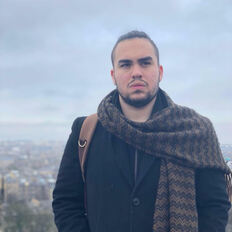 Sasha Reiter was born in New York City in 1996. He attended Public School and received his B.A. in English Literature and Creative Writing from Binghamton University (2018). He has published one collection of poems: Choreographed in Uniform Distress/Coreografiados en uniforme zozobra (New York: Artepoeetica Press, 2018). His poetry has been published in English and in translation into Spanish and Korean in several magazines and anthologies. He has translated into English Identity Flight/Vuelo de identidad (a collection of poems by Oscar Limache, to be published by Grupo Editorial Amotape, Lima, 2020), and The Gaze/La Mirada (a collection of poems by Pedro Granados, to be published by Artepoética Press, New York, 2020). He is currently pursuing an MFA in Creative Writing at Sarah Lawrence University. 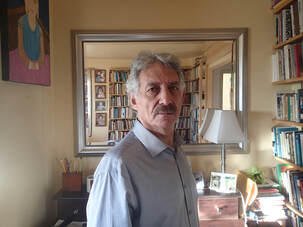 Photo by David Z. Goldemberg Photo by David Z. Goldemberg Isaac Goldemberg was born in Chepén, Peru in 1945 and has lived in New York since 1964. His most recent publications are Libro de reclamaciones (2018) and Philosophy and Other Fables (2016). In 2001 his novel The Fragmented Life of Don Jacobo Lerner was selected by the Yiddish Book Center of the Untied States as one of the 100 most important Jewish books of the last 150 years. He has translated the poetry of Donald Axinn, Stanley H. Barkan, Billy Collins, Peter Thabit Jones, Charles Simic, and Aeronwy Thomas. From 1971 to 1986 he taught at New York University, and presently, he is Distinguished Professor of Humanities at Hostos Community College of The City University of New York, where he is director of the Latin American Writers Institute and editor of Hostos Review. 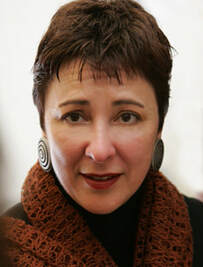 Carlota Caulfield, a poet, writer, translator and literary critic, has published extensively in English and Spanish in the United States, Latin America and Europe. Her most recent poetry books are Cuaderno Neumeister / The Neumeister Notebook and Los juguetes de Bertrand / Bertrand's Toys. The recipient of several awards, from 2016 to 2019 Caulfield was the W. M. Keck Professor in Creative Writing at Mills College, Oakland, California. She is the head of the Spanish and Spanish American Program, Department of Literatures and Languages at Mills College. Her webpage is www.carlotacaulfield.org. 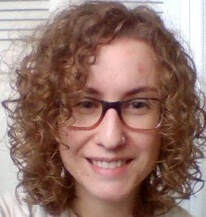 Jenny Irizary grew up along the Russian River in Northern California and now resides in Oakland. She holds a B.A. in Ethnic Studies and an M.A. in literature from Mills College. Her work has been published in Label Me Latina/o, Sick Lit, Snapping Twig, Communion, Weber, and other journals.
0 Comments
Somos en escrito editors Armando Rendón, Scott Duncan-Fernandez, and Jenny Irizary interview poet Ivan Argüelles on his life in Michigan and Mexico, family, libraries, Beat Poets and surrealism in his work. Ivan Argüelles also performs his two poems "Pachuco" and "Olvidos de mi padre" 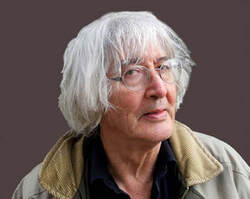 Ivan Argüelles is an American innovative poet whose work moves from early Beat and surrealist-influenced forms to later epic-length poems. He received the Poetry Society of America’s William Carlos Williams Award in 1989 as well as the Before Columbus Foundation’s American Book Award in 2010. In 2013, Argüelles received the Before Columbus Foundation’s Lifetime Achievement Award. For Argüelles the turning point came with his discovery of the poetry of Philip Lamantia. Argüelles writes, “Lamantia’s mad, Beat-tinged American idiom surrealism had a very strong impact on me. Both intellectual and uninhibited, this was the dose for me.” While Argüelles’s early writings were rooted in neo-Beat bohemianism, surrealism, and Chicano culture, in the nineties he developed longer, epic-length forms rooted in Pound’s Cantos and Joyce’s Finnegans Wake. He eventually returned, after the first decade of the new millennium, to shorter, often elegiac works exemplary of Romantic Modernism. Ars Poetica is a sequence of exquisitely-honed short poems that range widely, though many mourn the death of the poet’s celebrated brother, José. |
Archives
February 2023
Categories
All
|
Donate and Make Literature Happen
Somos En Escrito: The Latino Literary Online Magazine
is published by the Somos En Escrito Literary Foundation,
a 501 (c) (3) non-profit, tax-exempt corporation. EIN 81-3162209
is published by the Somos En Escrito Literary Foundation,
a 501 (c) (3) non-profit, tax-exempt corporation. EIN 81-3162209
©Copyright 2022


 RSS Feed
RSS Feed